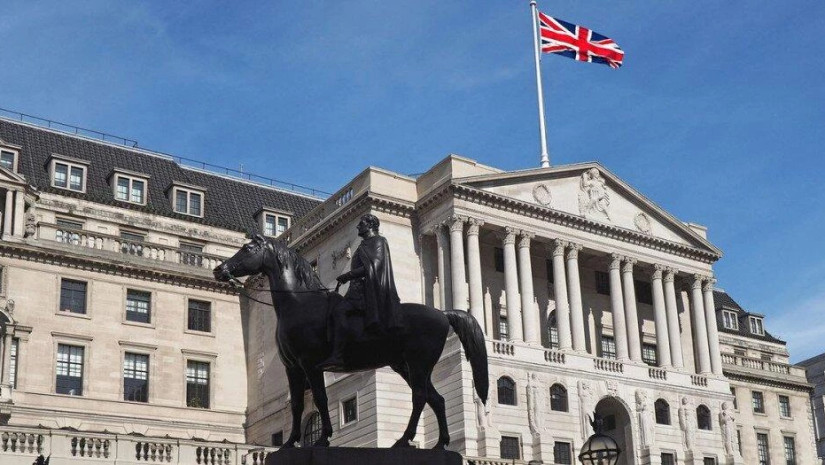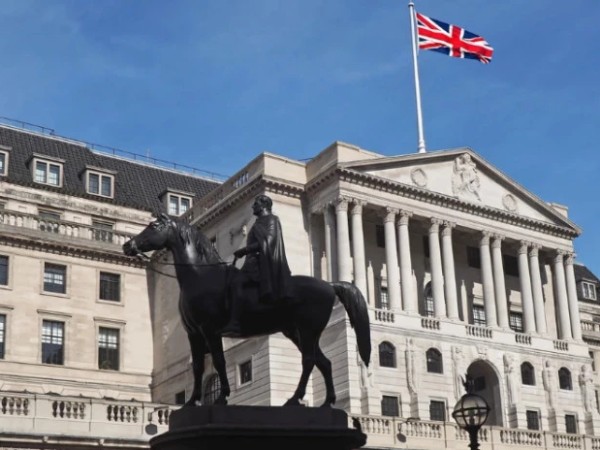The Bank of England on Thursday hiked interest rates by 25 basis points and revised its economic projections to now exclude the possibility of a U.K. recession this year.
The Monetary Policy Committee voted 7-2 in favor of the quarter-point hike to take the main bank rate from 4.25% to 4.5%, as the bank reiterated its commitment to taming stubbornly high inflation.
The headline consumer price index rose by an annual 10.1% in March, driven by persistently high food and energy bills. Core inflation, which excludes volatile food, energy, alcohol and tobacco prices, increased by 5.7% over the 12 months to March, unchanged from February’s annual climb and reiterating the risk of entrenchment that the bank is concerned about.
The MPC no longer expects the U.K. economy to enter recession this year, according to the updated growth forecasts in its accompanying Monetary Policy Report. U.K. GDP is now expected to be flat over the first half of this year, growing 0.9% by the middle of 2024 and 0.7% by mid-2025. The country’s newest GDP print will be published Friday.
The economy has thus far shown surprising resilience in fending off a widely anticipated recession, with falling energy costs and a fiscal boost announced in the government’s Spring Budget improving the outlook.
The MPC now assesses that “the path of demand is likely to be materially stronger than expected in the February Report, albeit still subdued by historical standards.”
“There has been upside news to the near-term outlook for global activity, with U.K.-weighted world GDP now expected to grow at a moderate pace throughout the forecast period,” the MPC said in its May Monetary Policy Report.
“Risks remain but, absent a further shock, there is likely to be only a small impact on GDP from the tightening of credit conditions related to recent global banking sector developments.”
Inflation slower to fall
Inflation is expected to drop sharply from April, as the large price hikes following Russia’s full-scale invasion of Ukraine drop out of the annual comparison. The extension of the government’s Energy Price Guarantee and further falls in wholesale energy prices also remove some inflationary pressure.
However, the MPC projects that inflation will decline at a slower rate than previously projected in the February report, falling to 5.1% by the end of this year, compared to a previous estimate of 3.9%. It is still expected to drop “materially below the 2% target” to just above 1% at the two- and three-year time horizons.
“The Committee continues to judge that the risks around the inflation forecast are skewed significantly to the upside, reflecting the possibility that the second-round effects of external cost shocks on inflation in wages and domestic prices may take longer to unwind than they did to emerge,” the MPC said.
“If there were to be evidence of more persistent pressures, then further tightening in monetary policy would be required.”
Focus on what comes next
Compared to the U.S. Federal Reserve’s hint at a pause in rate hikes last week, the Bank of England struck a notably more hawkish tone on Thursday, with stickier inflation meaning policymakers face a tricky call on when enough is enough on raising rates.
Vivek Paul, U.K. chief investment strategist at BlackRock Investment Institute, said that investor focus in light of Thursday’s decision would not be on the 25 basis point hike, but on what happens next.
“We are in a new regime where central banks are faced with sharper trade-offs between maintaining growth and controlling inflation; in the Bank of England’s case, this is especially acute,” Paul said in an email Thursday.
Inflation since February’s forecasts has proven stickier than expected, and the Bank still forecasts a bleak growth picture for years to come, which will likely be exacerbated by higher-for-longer interest rates. There is also growing concern over labor market tightness and the risk of a wage-price spiral.
“Recent comparative resilience in the growth picture could have two interpretations; the benign one, which suggests the economy is proving resilient to the effects of higher interest rates, or the pessimistic one suggesting that the full extent of the lagged damage is yet to occur,” Paul said.
“This has implications for how the Bank manages the trade-off from here: continued resilience may ultimately mean for more work for the BoE in terms of rate hikes; yet-to-be-seen lagged damage may mean it’s closer to stopping.”
Paul suggested that the Bank may be forced to keep rates higher for longer, a view echoed by Hussain Mehdi, macro and investment strategist at HSBC Asset Management.
“In the context of resilient economic activity, we think there is a good chance of the Bank Rate peaking at 5% by the August meeting. Rate cuts are unlikely until well into 2024, whereas the Fed could be in cutting mode later this year,” Mehdi said.
“As rates moves deeper into restrictive territory and credit conditions tighten, a policy-induced recession becomes almost inevitable,” CNBC reports.















